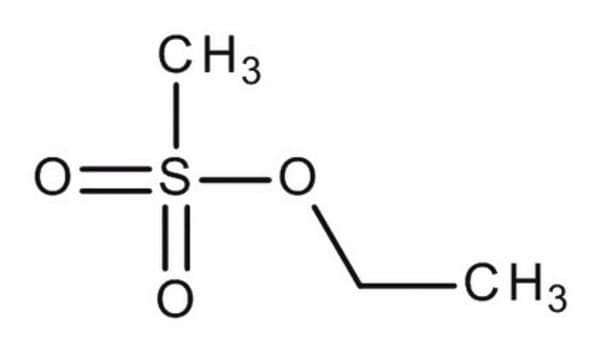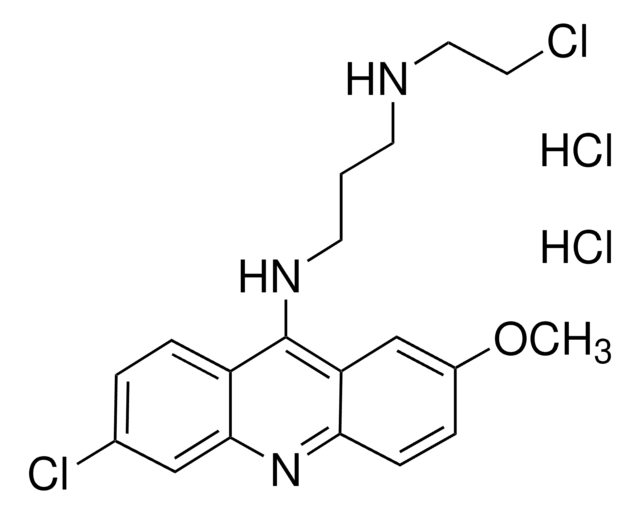129925
Methyl methanesulfonate
99%
Synonym(s):
Methanesulfonic acid methyl ester
About This Item
Recommended Products
Assay
99%
form
liquid
refractive index
n20/D 1.414 (lit.)
bp
202-203 °C (lit.)
density
1.3 g/mL at 25 °C (lit.)
SMILES string
COS(C)(=O)=O
InChI
1S/C2H6O3S/c1-5-6(2,3)4/h1-2H3
InChI key
MBABOKRGFJTBAE-UHFFFAOYSA-N
Looking for similar products? Visit Product Comparison Guide
Principle
Signal Word
Danger
Hazard Statements
Precautionary Statements
Hazard Classifications
Acute Tox. 3 Oral - Aquatic Chronic 2 - Carc. 2 - Eye Irrit. 2 - Muta. 1B - Repr. 2 - Skin Irrit. 2 - Skin Sens. 1 - STOT RE 2 Inhalation
Target Organs
Lungs
Storage Class Code
6.1C - Combustible acute toxic Cat.3 / toxic compounds or compounds which causing chronic effects
WGK
WGK 3
Flash Point(F)
219.2 °F - closed cup
Flash Point(C)
104 °C - closed cup
Personal Protective Equipment
Certificates of Analysis (COA)
Search for Certificates of Analysis (COA) by entering the products Lot/Batch Number. Lot and Batch Numbers can be found on a product’s label following the words ‘Lot’ or ‘Batch’.
Already Own This Product?
Find documentation for the products that you have recently purchased in the Document Library.
Customers Also Viewed
Our team of scientists has experience in all areas of research including Life Science, Material Science, Chemical Synthesis, Chromatography, Analytical and many others.
Contact Technical Service











